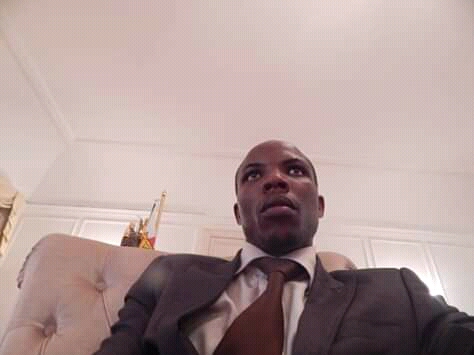Business
An Analysis On How Zimbabwe Can Harness Local Capital To Its Own Advantage
Published
4 years agoon

The Zimbabwean government’s adoption of the Open For Business mantra in its approach towards unlocking investment is a good public relations act which must be accompanied by an enabling policy framework that not only attracts foreign investment but one which also respects local capital and thus stimulating local savings and investment.
Zimbabweans on their own can play a critical role in unlocking the country’s economic Rubik’s cube since IMF Loans and World Bank Grants or any such foreign lines of credit will achieve very little in the absence of local goodwill.
During these economic difficulties that the country is going through, it is important to consider that hardworking, focused and resilient Zimbabweans have the capacity to bring back their economy into full throttle and high productivity.
However, this can be possible when there is efficient allocation of local capital and when incentives for participation in building the economy are right since after all, capital goes where it thrives. .
Over the years, in my formal and informal interactions with people across the board, I have conversed with friends who have felt safer investing their money elsewhere than in their own homeland Zimbabwe.
As a result, many great local ideas have been exported to other more functional economies as enterprising Zimbabweans, despite their love for their country, they had to make the tough call of taking their intellectual capital where it can yield better returns.
On one occasion, I accompanied a colleague to pitch his business idea in a neighboring country where we were well received in the business sense and this alone made it more appealing for him to establish in that country.
The government must therefore understand that local capital is an essential economic building block and that the entrepreneur and local investor is an ally who must be recognized, accommodated, promoted, protected and be celebrated in order to spur economic development.
Zimbabweans as a collective citizenry, i.e. both those in the diaspora and those at home can make a significant contribution in reviving their economy as long as they understand and believe that their capital is safe and that they themselves are welcome, respected and protected.
Once local capital thrives, Zimbabwe will become a honeypot that attracts even the most skeptical of investors since capital as a resource, it goes where it gets the best incentive and reward since no investor can ignore a good return underpinned by a stable economy.
That having been said, the question that comes to mind is how then can we get local capital to work for us?
The answers to this question are listed below:
- We need to probe how many local investment deals have fell through and why and what we can do to get them on track.
- We need to help the informal sector, the small business owners to scale, give incentive to local lenders to shift to lending for productivity as opposed to consumption. Zimbabwe is bubbling with potential and so is the rest of Africa. The question we should always ask when crafting policy is, ‘why would private capital prefer us?’
- We need to articulate a different policy direction that is inclusively underpinned by broad consultations with Zimbabweans. Zimbabweans must invest locally and also be encouraged to invest long term first before international capital can find real comfort here.
- We need to harness the diaspora dividend.
Implementing the afore-mentioned can bring an end to speculative investing and rent seeking behavior which is destroying the economy.
Local capital understands its own local environment. The fact that over 60% of Zimbabwe’s economy is informal proves that Zimbabweans are prepared and willing to work for themselves and their country. Should these hardworking Zimbabweans be given the requisite support for them to continue being productive, then economic stability would be guaranteed.
Zimbabwe’s diaspora is another important constituency in country’s development matrix. For the last two decades, the diaspora community have proven their importance to Zimbabwe’s economy. If only we can get them to participate in broader economic activities through more pronounced savings and investment.
Locally based Zimbabweans including local institutional investors have often received the short end of the policy stick despite their resilience and willingness to continue building. For instance, how institutional investors like pension funds recovered from the 2003-2008 spell is a miracle. Similarly how they are surviving after February 2019 is also an interesting subject considering the limited investment instruments available on the market.
These institutions are a key cog in stimulating savings and investment for any economy globally.
To put this into perspective, NSSA alone was collecting an average of US$200 million during the multi-currency era, not mentioning other statutory as well as private pension funds.
The above illustrates the potential and capacity for the country to succeed using local capital.
In closing, I will reference my 12 May 2014 chat with my late mentor Joseph Sagwati in which he wrote.
“You dont fly out to woo capital, you sell yourself to investors through an accommodative framework of policies on ease of doing business in a conducive environment where the sanctity of private property and enforceability of rule of law are sacrosanct and indivisible. Once this happens, Zimbabwe will ignite the required glow that attracts investors without wasting taxpayers’ money on empty global junkets with a begging bowl.”
Zimbabweans can build Zimbabwe and once we start, the rest of the world will join us.
Prechard Mhako | Business Development Consultant & Economic Analyst | Email [email protected]
You may like
-


Wedding Planning Is My Passion, That Is Why My Clients Say I am The Best
-


Critical Analysis of Finance Minister Mthuli Ncube’s Currency Stabilization Task Force Announcement
-


The Ten (10) Benefits of Marketing
-


Muckem Online Bookstore, a Timely Gift to Zimbabwean Authors and Book Lovers
-


Muckem Online Bookstore, a Timely Gift to Zimbabwean Authors and Book Lovers
-


Collaboration, Professionalism and Good Customer Service behind local Electrical Engineering SME, Anzrom’s Success Story







Warning: Undefined variable $user_ID in /home/iniafrica/public_html/wp-content/themes/zox-news/comments.php on line 49
You must be logged in to post a comment Login